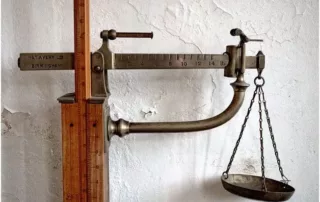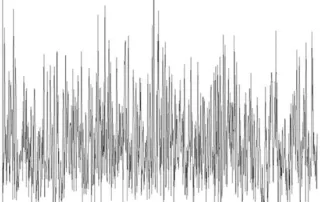Blogs
Displacement Measurement
Types of Displacement Measurement Run-Out/Vibration There are many ways to measure run-out/vibration including the type of measurement system, run-out or vibration (direction), and environment where the system is being installed. Choosing the wrong kind of equipment can lead to drastic consequences. You can run into issues such as increased man-hours during production and issues with insufficient precision. Example Applications Run-out measurement of HDD surface Laser displacement sensors are very helpful in measuring the oscillation at a single point on a specific target’s exterior. The further away that vibration amplitude is from the center of rotation from a target, [...]
Measurement List
Measurement List Displacement sensors/measurement systems make many different types of measurements possible. Typically the application environment and the measurement target determines the type of measurement method that should be used for optimum results. There are several types of measurement systems that you should become familiar with: Dimension Measurement Thickness Width Height/Step Outer Diameter Angle Radius / Inner Diameter Displacement Measurement Run-out/Vibration Eccentricity Stroke Positioning Edge Position Gap/Clearance Profile Measurement Warpage and Flatness 2D Shape 3D Shape Thickness For those searching for Thickness Measurement Systems If you’re searching for the best method of measuring thickness, the process may not be [...]
Inline Offline Measurement
Inline/Offline Measurement Inline and offline measurements refer to two different types of measurements. Inline Measurements are commonly referred to as automatic measurements made during a process . Offline measurements, on the other hand, are often referred to as manual measurements. The difference between the two occurs during the measurement process (line). If the measurements are included in the line then the process is considered “inline”. If it’s separate from the line then it’s considered “offline”. For off line measurements products are removed from production , inspected and returned to production ,discarded or saved as inspection samples Inline Measurement An [...]
Fiber Optic Systems
Fiber Optic MTI 2100 Fotonic Sensor View Product Fotonic Plug-in Module View Product MTI Instruments offers large measurement range and standoff distance fiber-optic measurement sensors and probes that provide ultra-sensitive linear output response. Our modular (interchangeable) non-contact fiber optic sensors systems have dual channel that enables the user to make simultaneous measurements. Our fiber optic probes are designed to automatically compensate large changes in reflectivity making it possible to monitor dynamic reflectance of up to 100:1 making it ideal for measuring vibration of ultrasonic horns, modal analysis of disk drive suspension, [...]
Measurement Fundamentals
Measurement Fundamentals
MTI Downloads
[download_page show_search=true posts_per_page=50 default_orderby=title show_tags=false]
Vitrek Knowledge Center
Vitrek Knowledge Center Welcome to Vitrek's Knowledge Center! As the industry leader for test, measurement and high-speed data acquisition, we are proud to provide a wealth of knowledge and resources for our industries and markets we serve. Use the links below to learn more about Vitrek's vast portfolio of products. Measurement Fundamentals Advanced Sensing & Physical Measurement Technology Principles Laser Triangulation Sensors Laser triangulation sensors can be divided into two categories based upon their performance and intended use. High-resolution lasers are typically used in [...]
Important Terminology for Measurement System Selection
Important Terminology for Measurement System Selection Mounting conditions / Mounting mode – to properly measure an object/target with the aid of a laser displacement sensor, you must reflect the light from the object to the receiver. Measurement systems that use a triangulation method for measurement, along with variable surface conditions of the object, have sensor heads that are installed at an angle so that light can be reflected and received in the proper manner. Opaque targets – both the sensor head and the target must be installed parallel to each other so that a portion of light hit the [...]
History of Measurements
The History of Measurements Measurement, loosely defined is the length, amount, or size of something that is measured. Long ago, the idea of a universal measuring system didn’t exist. That was, until the 18th century where measurement became a cohesive system. Before this period, countries such as France had measuring systems for nearly every profession. In 1795 the number of measurements in France alone numbered well over seven hundred. The names for many units of measurement were borrowed from human morphology. For example, the foot, the hand, the pace, etc. Still, however, these units of measurement were not standardized. [...]
Electronic & RF / Radio Frequency Noise
Electrical and RF noise appears in a wide variety of forms. Noise of this nature has a direct effect on electronic and radio frequencies. Electrical and RF will appear in all electronic and RF systems and can directly affect and even limit performance capabilities of a wide variety of systems. The nature of noise is random which means that it’s impossible to eliminate the effects it has on systems. The moment noise has entered a system it’s impossible to remove it. With that being said, however, it is possible to filter out some of the sound (in some instances) though this [...]


